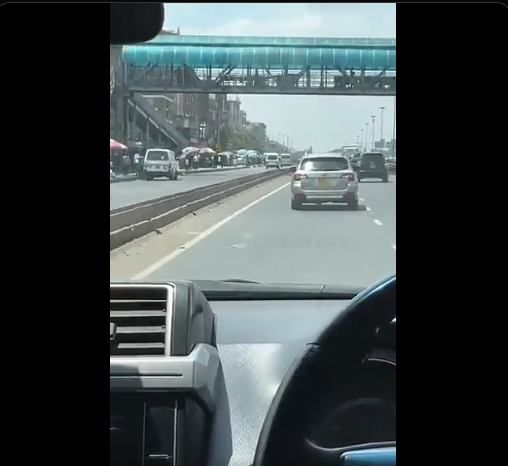Morara Kebaso, a renowned political activist, has been abducted once again, sparking a wave of concern and anger among his supporters.
This latest incident mirrors previous abductions tied to the crackdown on anti-government voices in Kenya.
On October 1, 2024, Kebaso was apprehended at his Kahawa Sukari office under mysterious circumstances by individuals who claimed they were following “orders from above.”
He was bundled into a Subaru Forester and taken to the Nairobi Regional Police Headquarters before being transferred to the Directorate of Criminal Investigations (DCI) in Kiambu.
In an unprecedented twist, Kebaso’s abduction was live-streamed by his supporters on social media platforms like X and TikTok, bringing instant public attention. Hashtags such as #FreeMoraraKebaso quickly trended online, amplifying the outcry against his arrest.
Notably, political figures like Busia Senator Okiya Omtatah joined the protest outside the DCI offices, denouncing the abduction as illegal and demanding that Kebaso be formally booked at a police station.
Omtatah and other supporters vowed not to leave the premises until Kebaso’s whereabouts were confirmed, accusing the government of silencing its critics through illegal detentions.
The livestreams attracted thousands of viewers, many of whom expressed frustration over the recurring pattern of political abductions in Kenya.
This public outcry is part of a broader trend, where social media plays an increasingly significant role in exposing and rallying against government actions perceived as authoritarian.
In this instance, the sheer visibility of the event forced the government to handle Kebaso’s case more transparently, as citizens and activists kept a close watch on his movements.
The next day, Kebaso was charged in court with cyber harassment under the Computer Misuse and Cybercrimes Act, specifically linked to a post on X accusing businessman David Langat of financial improprieties.
According to the allegations, Kebaso had falsely claimed that President William Ruto was exploiting his friendship with Langat for personal financial gain, leading to Langat’s financial ruin.
Despite the seriousness of the charges, Kebaso was released on Ksh 50,000 bail, much to the relief of his supporters.
Following his release, Morara Kebaso expressed gratitude to his supporters, who had kept vigil outside the court and DCI offices throughout the ordeal.
He promised to continue his activism, emphasizing that the struggles of ordinary Kenyans under the current regime would not be forgotten. The crowd, buoyed by his words, marched through Nairobi’s Central Business District, chanting anti-government slogans and celebrating his temporary freedom.
This latest abduction underscores the rising tension in Kenya, where political activists like Kebaso have repeatedly found themselves targeted for speaking out against the government.
As abductions and arrests of dissenters become more frequent, many Kenyans are increasingly turning to social media as a tool to document and challenge these injustices.
For Morara Kebaso, the events surrounding his abduction illustrate the power of public solidarity in pushing back against oppressive actions.


